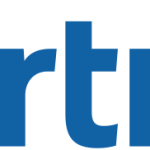- Industry: Consulting
- Number of terms: 1807
- Number of blossaries: 2
- Company Profile:
Gartner delivers technology research to global technology business leaders to make informed decisions on key initiatives.
Electronic forms (e-forms) provide a user interface to data and services, typically through a browser-based interface. E-forms enable users to interact with enterprise applications and the back-end systems linked to them. Web applications, e-government and e-commerce solutions have sparked the demand for better Web forms that support richer and more dynamic interactions than are possible with HTML forms. New e-form applications include XML content identification, multiple data callouts, field-level validation and embedded process logic contained within a secure format that’s often portable.
Industry:Technology
Electronic data capture (EDC) is the electronic acquisition of clinical study data using data collection systems, such as Web-based applications, interactive voice response systems and clinical laboratory interfaces. Information is stored in EDC applications and used for analysis, or it is transferred to a clinical trial database containing the data from many clinical studies.
Industry:Technology
Electronic customer relationship management (e-CRM) involves the integration of Web channels into the overall enterprise CRM strategy with the goal of driving consistency within all channels relative to sales, customer service and support (CSS) and marketing initiatives. It can support a seamless customer experience and maximize customer satisfaction, customer loyalty and revenue.
Industry:Technology
Electronic coupons (E-coupons) are the digital form of a paper coupon or voucher (also known as an “offer”), and can encompass several formats, including mobile and social coupons. An e-coupon can be part of a single-party process, where a retailer issues a coupon via its campaign management system for redemption in its stores, or it can be a multiparty process, such as digitized brand manufacturer coupons that are distributed in a variety of ways, such as redeemed in stores or processed by clearinghouses.
Industry:Technology
Electronic coupons (E-coupons) are the digital form of a paper coupon or voucher (also known as an “offer”), and can encompass several formats, including mobile and social coupons. An e-coupon can be part of a single-party process, where a retailer issues a coupon via its campaign management system for redemption in its stores, or it can be a multiparty process, such as digitized brand manufacturer coupons that are distributed in a variety of ways, such as redeemed in stores or processed by clearinghouses.
Industry:Technology
Electronic bill presentment and payment (EBPP) comprises the presentation of online billing statements to residential, commercial or industrial customers for viewing and the enablement of Web-based payment methods, such as credit card charging and electronic funds transfer (EFT).
Industry:Technology
Electro mobility (or e-Mobility) represents the concept of using electric powertrain technologies, in-vehicle information, and communication technologies and connected infrastructures to enable the electric propulsion of vehicles and fleets. Powertrain technologies include full electric vehicles and plug-in hybrids, as well as hydrogen fuel cell vehicles that convert hydrogen into electricity. e-Mobility efforts are motivated by the need to address corporate fuel efficiency and emission requirements, as well as market demands for lower operational costs.
Industry:Technology
Electro mobility (or e-Mobility) represents the concept of using electric powertrain technologies, in-vehicle information, and communication technologies and connected infrastructures to enable the electric propulsion of vehicles and fleets. Powertrain technologies include full electric vehicles and plug-in hybrids, as well as hydrogen fuel cell vehicles that convert hydrogen into electricity. e-Mobility efforts are motivated by the need to address corporate fuel efficiency and emission requirements, as well as market demands for lower operational costs.
Industry:Technology
E-learning is the use of Internet technology for learning outside of the classroom. E-learning suites are software solutions that enable automation, administration and training over the Internet. E-learning suites are integrated product collections that comprise learning management systems (LMSs), virtual classrooms, courseware and learning content management systems (LCMSs). An LMS is software that automates the training process and function and includes registration and administration tools, skills and records management, courseware access, and programming interfaces to packaged applications. An LCMS is an integrated set of technology that manages all aspects of learning content. This includes authoring or acquisition, content history, auditing, replacement, and deletion. An LCMS generally works in conjunction with an LMS.
Industry:Technology
With elastic multitenancy, application instances (tenants) are isolated logically, but integrated physically. The degree of logical isolation must be complete, but the degree of physical integration varies. The tenants can be organizations using one multitenant application or multiple applications competing for shared underlying resources. Multitenancy may also be nested when tenants are independent software vendors (ISVs) with their own subtenants. Multitenancy is elastic when resources are redistributed among tenants on-demand.
Industry:Technology
